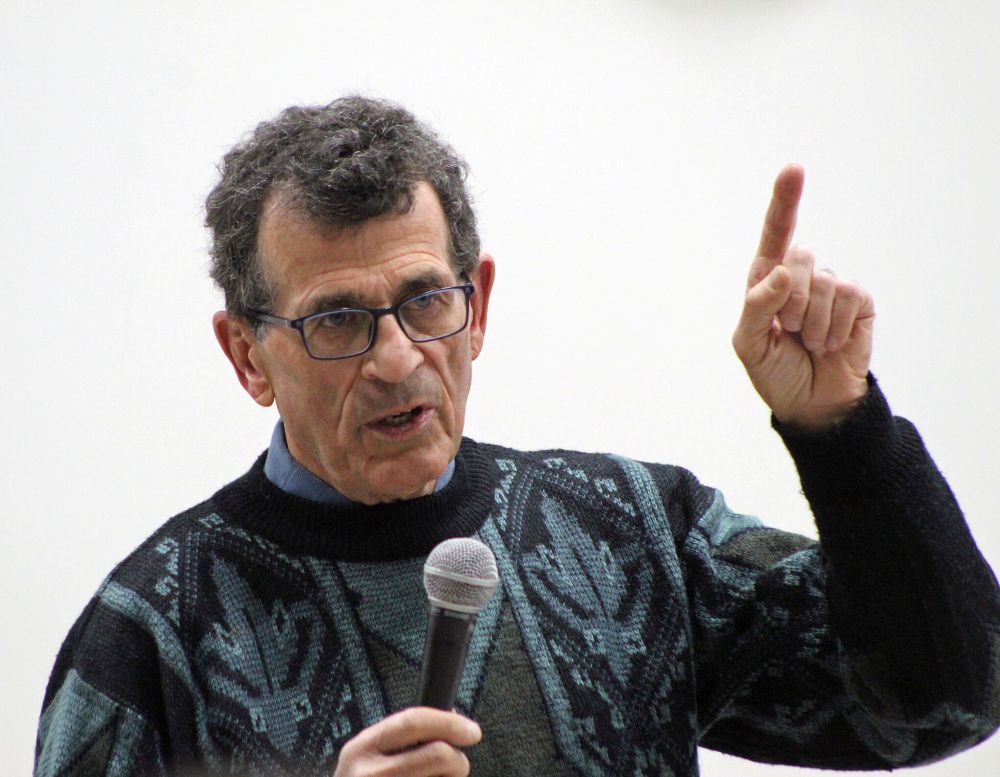Springfield forums focus on water
Advertisement
Hey there, time traveller!
This article was published 10/12/2021 (1289 days ago), so information in it may no longer be current.
Fed up with all three levels of government, critics of two water-intensive projects in the RM of Springfield have teamed up to organize a series of public forums, in the hopes of convincing residents that more caution and regulation are needed to protect drinking water sources.
Billing itself as Save Our Water Springfield, the grassroots coalition crosses political lines and includes members of the Springfield Taxpayers Rights Corp., Our Line in the Sand Manitoba, and What the Frack Manitoba.
The group held its first forum in Anola last week. Another takes place tonight in Dugald.

Tuesday’s forum in the Cooks Creek Community Centre attracted about 35 people, including Colleen Draper, Springfield’s chief administrative officer, who listened quietly as speakers criticized some of her past decisions.
Dennis LeNeveu, a science researcher with What the Frack Manitoba, walked the audience through his concerns with CanWhite Sands’ plan to mine and process silica sand near Vivian.
Silica dust, noise and light pollution, sink holes, acid drainage, and aquifer contamination could all result from the project, LeNeveu said.
He also zeroed in on company filings that lacked detail and technical documents that were omitted from the project’s public registry.
“This doesn’t sound like an innocuous project to me.”
Allan Akins, the driving force behind the Springfield Taxpayers Rights Corp., outlined regulatory, land-use, and environmental concerns surrounding Berger’s new peat moss mixing plant near Oakbank.
Springfield council’s handling of the plant’s arrival led the Taxpayers to file a lawsuit against the RM earlier this year. The matter is still before the court.
Akins said it’s “hypocritical” for the RM to fine Oakbank residents who water their lawn during a drought while approving industrial operations that use huge quantities of water.
Berger’s provincial water licence allows it to use 80 gallons per minute, an amount Akins said is equivalent to the daily water use of 2,300 residents.
“We should be digging our heels in and saying no,” he said.
Akins is calling on council to implement a water rights bylaw that would give residents priority over commercial and industrial operations during a drought.
“We’re going into an election year and we need to make it an election issue,” Akins said.
He also wants the RM to develop a long-term drinking water plan and hire a hydrologist to determine the aquifer’s capacity. In the meantime, Akins said council should also place a moratorium on water-intensive new development.
Darryl Speer, who used to work for the provincial mines branch, talked about the link between resource extraction and groundwater contamination.
Speer recounted his work on an aggregate committee that advised Springfield council on extraction activities in the aggregate-rich RM. Speer said the committee was suddenly dissolved after the 2018 municipal election.
Flipping through photographs of depleted gravel pits, Speer claimed the Manitoba Heavy Construction Association has a “stranglehold” on council and the Springfield Chamber of Commerce.
Janine Gibson, secretary of Our Line in the Sand, moderated the forum, occasionally interjecting to urge attendees to talk to their neighbours and lobby elected officials.
Gibson said she’s convinced that Manitoba’s conservation minister called a Clean Environment Commission hearing into the CanWhite project “because of pressure from folks like you and I.”
As the evening wound to a close, RM of Reynolds Coun. De-Ann Holmes took to the mic to encourage everyone to think regionally about water protections.
“This isn’t about Springfield. This is about all of us working together.”
Some attendees stopped to sign a petition on their way out. Others stood to offer their thoughts during a question-and-answer period following each presentation.
One man said the wells abandoned by CanWhite reminded him of Walkerton, Ont., where manure runoff sparked an E. coli outbreak that killed six people in 2000.
Surveying the crowd, another man encouraged more young people to pay attention to the issue of water.
